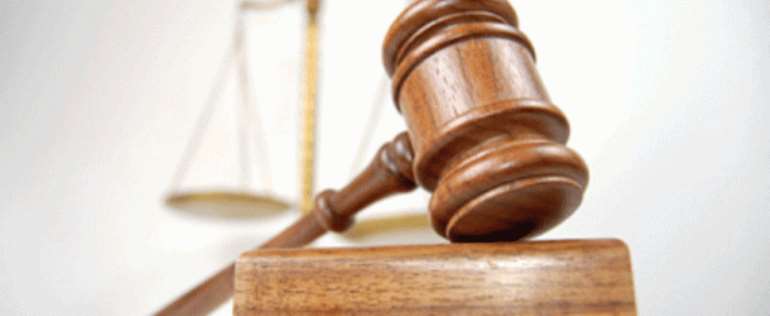Cleansing the judiciary – Thisday

Justice Mukhtar is living up to her pledge to rid the judiciary of corruption. When Justice Aloma Mariam Mukhtar stood before the Senate last July for her confirmation hearing as the first female Chief Justice of the federation, she admitted that there was corruption in the judiciary but made a firm commitment to cleanse the system. In her statement to the Senators at the time she declared: 'There is corruption in the judiciary just like every aspect of the society. The most important thing is to curb it and lead by example and ensure that others follow.' She then added: 'One thing I would do is to embark on internal cleansing of the entire system' and that her priority would be to reposition the judiciary and deal with the 'bad eggs giving the judiciary a negative image'. Such cleansing, she said, would enable the Judiciary regain the trust of Nigerians.
Justice Mukhtar seems to be doing exactly what she promised she would do with the announcement last Thursday by the National Judicial Council (NJC) which she heads, suspending Justices Charles Archibong of the Federal High Court Lagos, and Thomas D. Naron of the High Court of Justice, Plateau State as a first step toward their compulsorily retirement from the Judiciary. The two justices were interdicted for excesses bordering on abuse of office in the discharge of their duties.
According to a statement by the NJC, Justice Archibong was being retired on account of 'findings by the council that the judge dismissed grievous charges against an accused without taking his (the accused) plea; that he refused to release the certified true copy of his ruling to the lawyers and that the judge issued a bench warrant on some officials of the Peoples Democratic Party (PDP) for contempt even when the counsel who was directed by the court to serve them filed an affidavit that he had not been able to serve the contempt application.'
Perhaps much more serious in the charges against Justice Archibong was the NJC's denouncement of his scathing remarks of professional incompetence against some five Senior Advocates of Nigeria (SANs) including the then President of the Nigerian Bar Association (NBA), Mr. Joseph Daudu, while dismissing a 26-count charge brought against the former chief executive officer of the defunct Intercontinental Bank Plc, Mr. Erastus Akingbola by the Economic and Financial Crimes Commission (EFCC). Justice Thomas Naron on his part was indicted for his controversial role in the perversion of justice in the scandalous ruling he led three other judges to deliver at the defunct Osun State Governorship Election Petition Tribunal in 2007. The Tribunal's judgment was later upturned by an Appeal Court in Ibadan.
Meanwhile, the NJC further set up a committee to probe Justice Abubakar Talba of the Federal Capital Territory (FCT) High Court. Justice Talba, it will be recalled, was the judge who gave a ridiculously light sentence to Mr. John Yusufu, the former deputy director in the Police Pensions Fund office who pleaded guilty to his involvement in stealing N39 billion pensioners' money. Justice Talba handed the convict a two year sentence with option of fine of N750,000 which he paid on the spot!
We need to point out here that the decision to confront head-on the cesspool of corruption in the judiciary may not have been a solo-act given that the CJN is merely the Chairman of the NJC. Yet the fact that the actions were taken under her watch speaks volumes of her person and strength of character. After all, before now, there had been numerous allegations, some of them very weighty, against many of the nation's judicial officers but nothing came out of them. But she has chosen to act to cleanse the Augean Stables. We therefore urge all stakeholders to cooperate with the CJN in her drive to reposition the judiciary and return it to the path of integrity.
